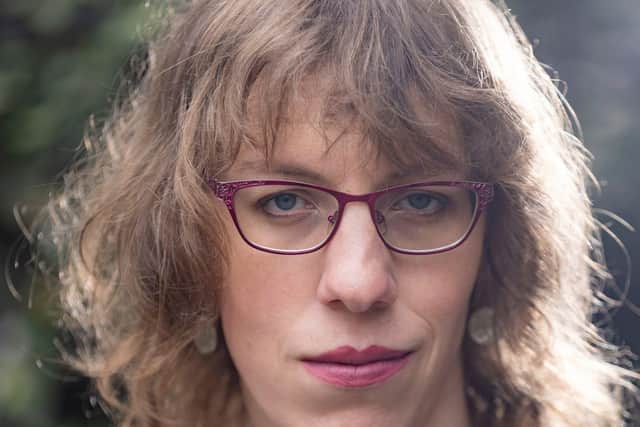THEM! by Harry Josephine Giles review - 'leads us into the revealing heart of trans experience’
Harry Josephine Giles is a native of Orkney, a transsexual woman and an award-winning writer whose recent groundbreaking epic Deep Wheel Orcadia became the first ever poetry winner of the Arthur C Clarke Award for Science Fiction; and her poetry is all over the place, in this dazzling third collection of 100 pages or so, published by Picador.
Sometimes it sits sedately in the centre of the page, as if no alternative to that conventional placing had ever entered the writer’s head. Sometimes it remains in that familiar place, but morphs into what look like blocks of prose, in wildly varying type sizes. There are poems almost illegibly over-printed in two different versions; in English and Scots, or in a first version and a more finished one.
Advertisement
Hide AdAt other times, the writing flows in paragraphs like a conventional short story, but is contained on either side by borders of words printed at right angles to the text; so Giles’s “The Worker” – a hugely powerful and intelligent seven-page reflection on the position of so-called “precarious” workers in the 21st century economy – is bordered by phonetic phrases full of slightly contemptuous nature imagery, in what might be the voice of her native Orkney.


And then there is the explosive central section of the book, in which Giles’s words escape and begin to rage across the page, or to be interrupted by great splashes of visual imagery, in a kind of concrete poetry that looks like the collapse of a civilisation, or at least the visual representation of a huge intelligence subjected to desperate inner pain. Strange visions are recounted in small blocks of prose or poetry, while intrusive strings of words emerge from beyond the page to wind round them.
Giles’s powerfully political poem The Reasonable People presents itself in little jostling chunks of verse across six pages, while elsewhere the poetry collapses into inky drawings at the bottom of the page, or is suddenly replaced by rough-edged prints of photographs taken in random corners of Glasgow and Edinburgh; and a hugely poignant and powerful sideways double page reproduces the shape and look of an NHS gender treatment pathway form, but replaces its words with images of a walk up a Scottish mountain, and the ever-shifting life of the plants and animals encountered there.
Giles sometimes chafes against the way her experience as a transgender person tends to consume her life and writing. In a powerful poem called “May a Transsexual Hear a Bird?” she asks what happens when the connection to nature that is essential to her poetry is simply overwhelmed by her other struggles; and recognises that if she writes about hearing a bird, it will be perceived first as a transsexual hearing a bird, not simply as a person hearing a bird.
Yet Giles is writer enough – intelligent, fierce, in complete command of a huge range of language across English, Scots and Orcadian – both to lead us into the revealing heart of trans experience, with deep insights into the very essence of change, transition, liminality, and its ancient role in our cultural history; and also to handle the other themes that haunt this collection with a combination of rage, pity, and absolute assurance that is sometimes almost frightening.
At the end of “The Worker”, Giles signs off with a brief spell, surrounded by a circle made up of the word “salt”. “Here is the spell,” it says: “when the bargain we are made to make/ for food and shelter is…. to place our agency at the service/ of another’s thirst, to give up the gifts / of time and breath to clocks and smoke,/ then those who say they value life / shall pay in return enough for life./ And when you do not, we will take it.” When it comes to the economic world we all inhabit, in this crisis-ridden new millennium, no poet, and no writer, can say much fairer than that; and this mind-shifting collection places Harry Josephine Giles among the best of them.
THEM!, by Harry Josephine Giles, Picador, £10.99